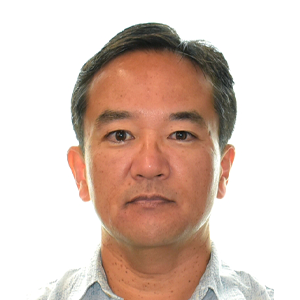Naoshige Uchida is professor of molecular and cellular biology at Harvard University. He studies the neurobiological mechanisms underlying decision-making and reinforcement learning, using rodent models. He received his Ph.D. from Kyoto University, where he worked on the molecular mechanism of synaptic adhesions in Masatoshi Takeichi’s laboratory.
Uchida first began studying olfactory coding in Kensaku Mori’s laboratory at the RIKEN Center for Brain Science. He then joined Zachary F. Mainen’s laboratory at Cold Spring Harbor Laboratory, where he developed psychophysical olfactory decision tasks in rodents. He started his laboratory at Harvard University in 2006. His current interests include neural computation in the midbrain dopamine system, functions of the cortico-basal ganglia circuit, foraging decisions and motor learning. His research combines quantitative rodent behaviors with multi-neuronal recordings, optogenetics, viral neural circuit tracing, two-photon microscopy and computational modeling.




